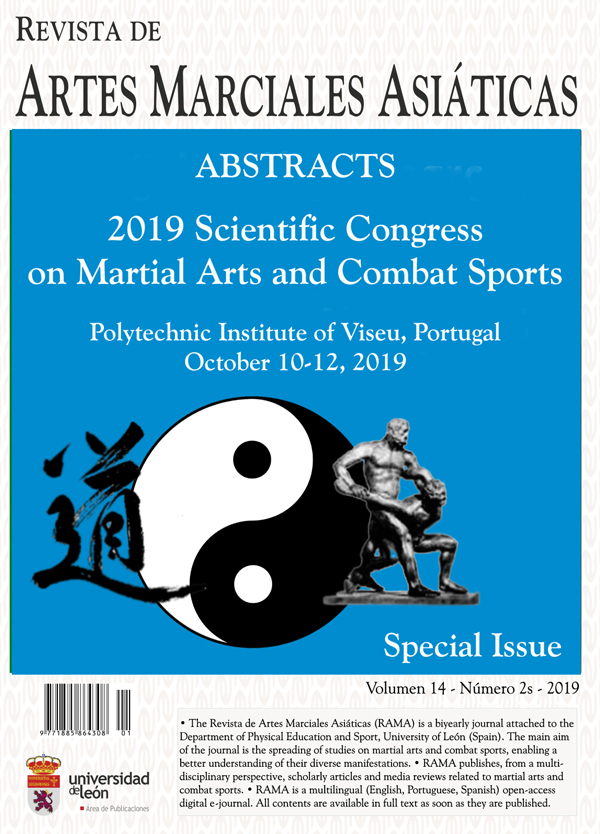“Deep Cover”: Identities and ethics in martial arts fieldwork
DOI:
https://doi.org/10.18002/rama.v14i2s.6003Palavras-chave:
Martial arts, combat sports, qualitative research, fieldwork, ethics, identity, participant-observationResumo
Qualitative research in the social sciences typically requires a personal engagement with resource persons. The widely used participant-observation method requires that the researcher assume as far as possible the role of community member. Even when participant observation is not the chosen method, group members assign identities to investigators. Role assignment in martial contexts may range from the “intruder” who disrupts ongoing events (e.g., outsiders may not see “secret techniques”) to one who is allowed insider access, usually after having gone through some test or rite of passage. Data collected in “natural context” is ideal. The primary problem here is that act of observation inevitably changes phenomena under examination. The most effective means of gathering information in a natural context is by engaging in what is known in the Intelligence community as “deep cover” actually joining a community for the purpose of secretly gathering information. This, of course, brings with it serious ethical dilemmas. While it is clear that we must all address the issue of transparency vs. efficiency, most decisions actually are made on a case by case basis. I suggest that it may be time to develop a general set of guidelines to help us keep faith with informants and accomplish our academic goals of accurately depicting the martial cultures with which we engage.
Downloads
Métricas alternativas
Referências
Abrahams, R. (2005). Everyday life: A poetics of vernacular practices. Philadelphia: University of Pennsylvania Press.
Edbrook, C. (1961). Principles of deep cover. Studies in Intelligence, 5, 1-29.
Goldstein, K. (1974). A guide for fieldworkers in folklore. Farmington Hills, Michigan: Gale Research.
Jackson, B. (1987). Fieldwork. Urbana and Chicago: University of Illinois Press.
Toelken, B. (1979). The dynamics of folklore. Boston: Houghton Mifflin.
Wacquant, L. (2003). Body & soul: Notebooks of an apprentice boxer. Oxford and New York: Oxford University Press.
Downloads
Publicado
Como Citar
Edição
Secção
Licença
Direitos de Autor (c) 2019 Thomas A. Green

Este trabalho encontra-se publicado com a Licença Internacional Creative Commons Atribuição-NãoComercial-CompartilhaIgual 4.0.
Os autores que publicam nesta Revista estão de acordo com os seguintes termos:
- Os autores cedem, de forma exclusiva, os direitos de exploração (reprodução, distribuição, comunicação pública, transformação) à Universidade de Léon, podendo estabelecer, em separado, acordos adicionais para a distribuição não exclusiva da versão do artigo publicado na Revista (por exemplo: alojar no repertório institucional ou publicá-lo num livro), com o reconhecimento da publicação inicial nesta Revista.
- O trabalho encontra-se na Creative Commons Attribution-Non Commercial-Share Alike 4.0 International License. Pode-se consultar aqui o resumo e o texto legal da licença.
- Permite-se, e sugere-se, que os autores difundam electronicamente as versões pré-impressão (versão antes de ser avaliada) e pós-impressão (versão avaliada e aceite para publicação das suas obras antes da sua publicação), favorecendo a sua circulação e difusão, e com ela o possível aumento da sua citação e alcance pela comunidade académica.











